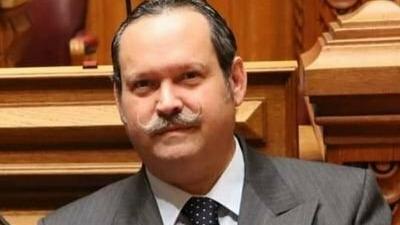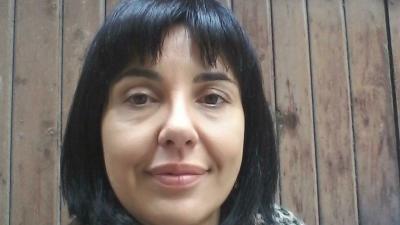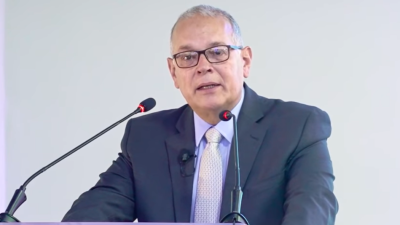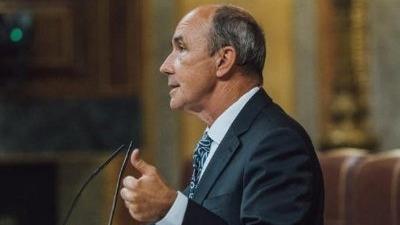Interview: Ricardo Regalla Dias Pinto: "In Portugal we have a new political scandal every day"
Interview with Ricardo Regalla Dias Pinto, chief of staff of CHEGA's president, André Ventura, and national director of International Relations, Public Relations and Protocol of the party. CHEGA, founded in 2019, defines itself as a right-wing party, conservative in customs, reformist, liberal in the economy and patriotic. In the last legislative elections held on 30 January 2022, CHEGA became the third political force in Portugal with 7.3% of the votes and 12 seats, eleven more than in the 2019 elections in which only André Ventura was elected. The second political force was the right-wing liberal PSD, which won 29.2% of the vote and 78 seats (Portugal's president, Marcelo Rebelo de Sousa, comes from the PSD). Victory went to António Costa's Socialist Party, who became prime minister after his party won 41.5% of the vote and 119 seats, three above the absolute majority.
Álvaro Peñas: Twelve senior members of the socialist government have resigned or been dismissed since May, including two ministers. What is happening in the Portuguese government?
Ricardo Regalla Dias Pinto: It is an exhausted government, full of improvisation and incapable of offering solutions for the country in this difficult international context. It is an extremely ideological government that has not been able to generate structural reforms or truly support families and businesses in their most basic needs. The socialist government does not know how to manage the economy and has an incredibly low level of implementation of the PRR (Recovery and Resilience Plan), despite spending its time with one hand outstretched to Europe and the other collecting higher and higher taxes to the point that the tax burden is one of the highest in Europe and the world. Not to mention the chaos in health, justice, housing, security and defence. In fact, this executive lives solely and exclusively on issues such as energy transition, despite the unimaginable values that the price of energy has reached in all its aspects, immigration and demographic replacement, or the rights of minorities exempt from duties.
In December, a scandal erupted that led to the resignation of the infrastructure minister over a possible case of corruption. In November, the prime minister's undersecretary of state, Miguel Alves, resigned, accused of prevarication. How far does corruption go?
Unfortunately, this is one case among many others. We are faced with an authoritarian socialist government that has actually irreversibly lost its moral and political credibility. Not much is currently known, although there are many suspicions, allegations and investigations. Everything points to the hypothesis of a possible large-scale scandal in several ministerial sectors, such as Defence or the Treasury, but also in some municipalities and the public administration, as in the case of TAP, the main Portuguese airline.
As a result of these scandals, a motion of censure was presented on 5 January.
Only CHEGA and the Liberal Initiative voted in favour, the PSD (European People's Party) chose to abstain, demonstrating once again its real inability to oppose the government and defend the Portuguese people, and the entire Left voted against it.
And a few hours after the motion's failure, a new scandal broke out.
Yes, Carla Alves, Secretary of State for Agriculture, had to resign 26 hours after her appointment because of a corruption case involving her husband, and the news was published that Hugo Pires, the new Secretary of State for the Environment, had sold his company to a group dedicated to the import and treatment of waste and materials considered dangerous to health and the environment. We have a new political scandal every day.
As far as I can see, Portugal is a lot like Spain.
Socialists are the same everywhere.
The parliament passed a new euthanasia law, CHEGA asked for a referendum, but nobody supported this initiative. What has been the PSD's position? Do you think President Marcelo Rebelo de Sousa will reject the law again?
Nobody supported us when we proposed the referendum on euthanasia. All parties preferred to play their political games and maintain the "cordon sanitaire" against CHEGA, instead of giving the Portuguese people a say on such a divisive and decisive issue. The PSD's position is unspeakable. After not having the courage to support our proposal, they called for a referendum on the eve of the vote in Parliament, knowing that legally it could not do so, just to try to win the political game. It is important to clarify that it is not possible, in the same legislative session, regardless of being another party, to present twice a proposal for a referendum on the same issue.
The President of the Republic, Marcelo Rebelo de Sousa, as André Ventura had requested in a hearing on the subject, has sent the euthanasia law to the Constitutional Court to verify its constitutionality and has not promulgated it as the socialists, the extreme left and the liberals wanted.
For some time now, part of the left has been attacking Portuguese history, and has even called for the demolition of the Monument of the Discoveries in Lisbon. How is the "woke" agenda advancing in Portugal?
An important part of the socialists and the extreme left has the clear intention to culturally uproot people and families, to weaken them and make them more vulnerable, and thus have more control over them. And in this sense an important element is to erase or revise history. Now, with the parliamentary weakening of parties such as the Bloco de Esquerda (equivalent to Podemos in Spain) or the PAN (animal and environmentalist party) and with the Socialist Party with a majority that frees it more from the need to resort to agreements with the extreme left, attacks against Portuguese history have decreased in intensity and there have been fewer cases of vandalism against monuments than during the previous legislature. This is not to say that such attacks do not still take place in a more discreet, albeit more profound, manner in schools.
In November, a group of "independent journalists" called the "Consortium" was created. Made up of left-wing activists who come from Open Society-funded media, it seems that the sole objective of these journalists is CHEGA.
I won't say it is their only target, but for now it is certainly their main target. In fact, their first "investigation" was about hate speech in the Portuguese police and the relationship between hate speech and CHEGA.
You are in charge of CHEGA's international relations and have first-hand knowledge of what is happening in Europe, can we be optimistic?
In my opinion, from 2024 onwards, there will be a rebalancing of forces within the European Union. Just look at the election results of some countries and do a simple extrapolation exercise for Europe. We have many examples: Rassemblement National in France, which goes from 8 to 89 MPs; the victory of the Sweden Democrats, the victory of the right-wing coalition in Italy; and the growth in the polls of CHEGA in Portugal, VOX in Spain, EKRE in Estonia, AUR in Romania, and so on.
All are sovereigntist parties, with a vision of a Europe of Nations and respect for sovereignty, culture, and traditions, and against federalism. They are all members of the European groups ID - Identity and Democracy and ECR - European Reformists and Conservatives. Therefore, it will depend on the capacity for dialogue between these two groups, and on the governing parties in Poland and Hungary, PiS and Fidesz, to create a broad front of active voting for common issues, a front that will be able to change the federalist path that the European Union is following today.
Read also
“Chechnya lives under a regime of terror where dissent is not allowed”: An interview with Marta Ter Ferrer
In Chechnya there is such absolute control that opposition is impossible. Criticising Kadyrov can result in a beating, public humiliation or even having your relatives’ house burned down.
Álvaro Peñas
Alejandro Peña Esclusa: “Classical art is a way of evangelising through beauty”
Interview with Alejandro Peña Esclusa, engineer, writer, analyst and political consultant.
Álvaro Peñas
Francisco José Contreras: “The renewal of the West is the historic task that the New Right must take on”
Francisco José Contreras is Professor of Philosophy of Law at the University of Seville and was a deputy for VOX during the last legislature (November 2019-July 2023).














Comments (0)